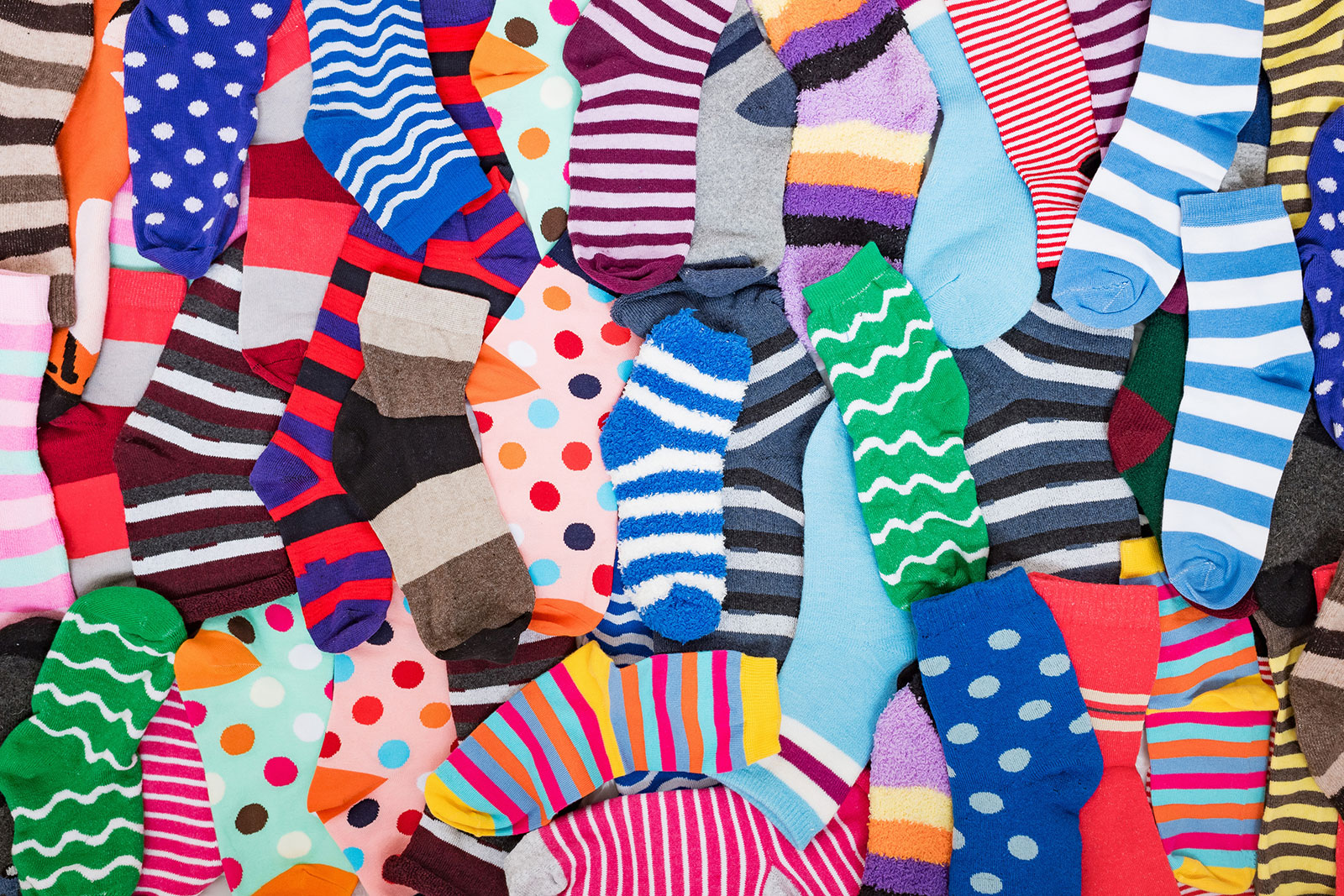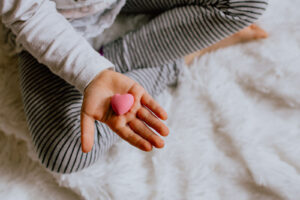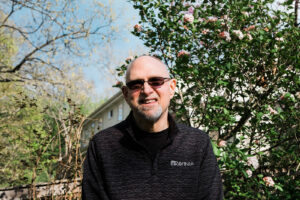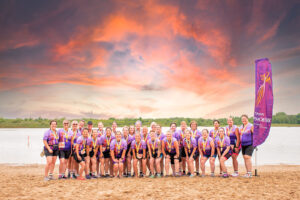Note: The following passages are excerpts from Laura Yeager’s chapbook, “Cancer Loot: The Stuff That Helped Me Survive Two Bouts of Cancer in Ten Years.”
I saw Dr. R, my oncologist, in June of 2021, and she informed me that she was retiring in November. That was a big deal for a two-time cancer survivor. Losing a good oncologist was like a best friend moving to a different continent, or worse yet, passing away. Ironically, it would be 10 years in November since my first cancer. Talk about good timing. I’d see my physician in November before Christmas, and she would take me off my cancer medication. That was another huge moment for a cancer survivor. I’d been popping cancer meds for 10 years. According to Dr. R, I wouldn’t need an oncologist ever again (God willing.)
Last year, I let Dr. R know how I felt about her with a small gift at Christmastime. I gave her two pairs of soft, thick socks. When I presented them to her, I said, “These are to keep your footies warm.” They were a small token of my love; they were personal, and she appreciated them. I knew this because about a month later, I got a beautiful thank you note from her. Seeing her handwriting and her own private stationary touched my heart. The card featured a hand-drawn bird on the front and inside it said, “I love the socks—will keep toasty toes all winter.”
Giving gifts is one of my favorite things to do. Gift giving is the way I show my love and affection. I adore buying little things and saving them for just the right moment. I keep these tokens in a huge closet in the hall—a gift closet.
Giving a gift was more fun for me than receiving one.
But during my 10 years with two occurrences of cancer, I received many gifts, both large and small, tangible and intangible–or should I say, spiritual. They were given by friends and family to ease the pain of the disease and worse yet, pain of the cures—chemotherapy, radiation, medication and lots of surgery.
I had thought for years about how to tell the story of my cancer, and funny, now that the journey was almost over, an answer to the narrative came to me. I’ll tell the tale in terms of the gifts I received during my cancer time.
[excerpted from “Cancer Loot,” chapter one]
“Your hair will fall out in clumps, and it isn’t attractive, so I advise all of my patients to get their head shaved early on in the chemo treatment,” Dr. R said during an appointment at her office in 2011 in Akron, Ohio.
This was news to me. I thought cancer patients lost their hair, not shaved it off.
I didn’t want to do the act alone.
One day, I was teaching writing at a local college as usual. It was a Tuesday.
“I’m getting my head shaved today. Would anyone want to come with me?”
Because of my cancer, this class and I were very close. They had gotten me a cake that said, “You can beat cancer!” But I guess we weren’t that close because no one volunteered to come.
I did it alone. I went to a salon just a mile away from the school.
“Shave it,” I said.
“Cancer?” the stylist said.
“Yes. How did you know?”
“You’ve lost a lot of hair, and you’re over 30.”
In fact, I was 48.
The shaving of my head was quite startling. The hair fell off in big curls. I think I might have teared up. My hair had always been something I was proud of. It was brown and thick, and at that point, I was wearing it long.
And then, I was completely bald.
Winter would be coming soon. I would need head coverings.
One day, I went to see my therapist, wearing a bright scarf. Alice, the receptionist, greeted me. “You did it,” she said.
“Yep.”
“I’ve got something for you,” she said, going to a closet. She pulled out a brown paper bag. “Here,” she said.
“What’s this?”
“My hats. I had breast cancer, too. I’m not sure if you knew that.”
“I didn’t.”
I looked inside the paper bag. In it were about a dozen fleece hats in all different colors. What a beautiful thing to be given in a predicament like mine—a rainbow of hats.
“Oh, Alice, thank you so much.”
“They’ll keep you nice and warm.”
I wore those hats all winter long. I wore them when people would commiserate with me in stores. “You’re a survivor,” they’d say. “You’ll get through this.” I wore them when I cooked. I wore them to sleep. The only time I wasn’t wearing one of her hats was when I was in the shower.
My mother didn’t like them. She preferred a wig, but wigs were itchy. After all, it wasn’t a beauty contest.
It was a contest of staying alive.
Every so often, when I would clean the closet in the hall, I’d come across one of Alice’s hats. I had never returned them. I guessed the right thing to do would have been to launder them and give them all back. All 12 of them.
But I kept them. I just couldn’t part with them, even when my therapist said, “I think you should give Alice her hats back,” after my hair grew in.
I dressed my son Tommy in them in the following winters. They had power, good Karma.
They were life itself because they were made from the fabric of kindness.
Kind Alice, thank you for the hats of many colors.
I will keep them forever.
[excerpted from “Cancer Loot,” chapter four]

Laura Yeager is a women’s health writer with over 10 years of experience writing for mental and physical health venues. From 2015–2020, she blogged regularly for psychcentral.com on topics such as bipolar illness and autism. Since 2016, she’s blogged for curetoday.com on the topic of finding happiness after a cancer diagnosis. Her earlier health writing was anthologized in 2012’s “Voices of the Women’s Health Movement,” edited by Barbara Seaman and Laura Eldridge. A graduate of The Writers’ Workshop at The University of Iowa, Laura teaches writing at Gotham Writers and at Kent State University at Stark. More of her cancer writing can be found at curetoday.com/contributors/laura-yeager. Laura Yeager lives in Ohio with her husband and son.







